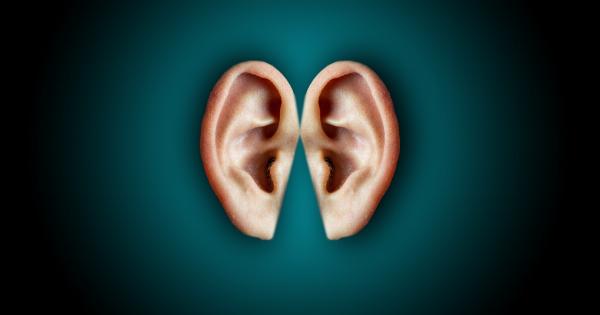Vitamin B refers to a group of essential nutrients that play a crucial role in maintaining good health. There are eight different types of vitamin B, each with its own functions and benefits.
However, inadequate intake or absorption of these vitamins can lead to deficiency and various health problems. In this article, we will explore the signs of vitamin B insufficiency and how to address them.
Different Types of Vitamin B
Before diving into the signs of vitamin B insufficiency, let’s briefly understand the different types of vitamin B:.
1. Vitamin B1 (Thiamine)
Vitamin B1 helps convert food into energy and supports proper functioning of the nervous system. It also plays a role in maintaining healthy hair, skin, and nails.
2. Vitamin B2 (Riboflavin)
Vitamin B2 is important for energy production, healthy vision, and maintaining the health of the skin, nails, and hair.
3. Vitamin B3 (Niacin)
Vitamin B3 aids in energy production, supports cardiovascular health, and helps maintain healthy skin.
4. Vitamin B5 (Pantothenic Acid)
Vitamin B5 is involved in the synthesis of various compounds necessary for the body’s normal functioning. It also helps with the production of energy and the formation of red blood cells.
5. Vitamin B6 (Pyridoxine)
Vitamin B6 is required for brain development and function, as well as for the production of certain hormones and neurotransmitters.
6. Vitamin B7 (Biotin)
Vitamin B7 is known for its role in maintaining healthy hair, nails, and skin. It also supports energy metabolism and helps with the proper functioning of cells.
7. Vitamin B9 (Folate)
Vitamin B9 is essential for DNA synthesis, red blood cell formation, and proper fetal development during pregnancy.
8. Vitamin B12 (Cobalamin)
Vitamin B12 is crucial for the production of red blood cells, DNA synthesis, and neurological health. It also helps with energy production.
Signs of Vitamin B Insufficiency
Now that we have an overview of the different types of vitamin B, let’s explore the signs that may indicate a deficiency:.
1. Fatigue and Low Energy Levels
Vitamin B complex is involved in energy production, so a deficiency in any of its members can lead to persistent fatigue and low energy levels.
2. Digestive Problems
Vitamin B deficiency can cause digestive issues such as diarrhea, constipation, or loss of appetite.
3. Changes in Mood and Mental Health
Vitamin B6 and B12 are particularly important for brain health. Deficiencies in these vitamins can result in mood swings, irritability, confusion, depression, and even memory problems.
4. Skin Issues
Biotin (vitamin B7) plays a crucial role in maintaining healthy skin. Insufficient levels of biotin can lead to dry, itchy skin, rashes, or dermatitis.
5. Hair and Nail Problems
Similar to skin issues, biotin deficiency can also cause brittle nails, hair loss, or thinning hair.
6. Anemia
Vitamin B12 and folate deficiencies can lead to a specific type of anemia known as megaloblastic anemia. This condition is characterized by abnormally large red blood cells that are unable to function properly.
7. Numbness and Tingling Sensations
Vitamin B12 deficiency can result in nerve damage, leading to numbness, tingling sensations, or a burning feeling in the hands, legs, or feet.
8. Muscle Weakness
Vitamin B1, B2, B3, and B6 are all essential for maintaining proper muscle function. Deficiencies in these vitamins can cause muscle weakness or even muscle wasting in severe cases.
9. Poor Immune Function
Vitamin B6 and B12 are vital for a healthy immune system. Inadequate levels of these vitamins can weaken the immune response, making the body more susceptible to infections.
10. Developmental and Pregnancy Issues
Vitamin B9 (folate) deficiency during pregnancy can lead to neural tube defects in the developing fetus. It is crucial for pregnant women to ensure they have sufficient folate intake to prevent such complications.
Addressing Vitamin B Insufficiency
If you suspect a vitamin B deficiency based on the signs mentioned above or if you have a poor diet lacking in essential nutrients, it is crucial to address it promptly. Here are a few strategies to help address vitamin B insufficiency:.
1. Balanced Diet
Aim for a well-rounded diet that includes sources of various vitamin B complex members. Rich food sources include whole grains, legumes, meats, dairy products, leafy greens, and nuts.
2. Vitamin B Supplements
In cases where diet alone cannot provide sufficient vitamin B intake, supplements may be necessary. Consult with a healthcare professional to determine the appropriate dosage.
3. Regular Blood Tests
If you are experiencing persistent symptoms or have risk factors for vitamin B insufficiency, regular blood tests can help identify any deficiencies.
4. Dietary Modifications
If you have specific dietary restrictions, such as being vegetarian or vegan, it is important to make appropriate dietary modifications to ensure adequate vitamin B intake.
5. Treatment for Underlying Conditions
In some cases, vitamin B insufficiency may be caused by underlying medical conditions. Treating these conditions can help restore vitamin B levels.
Conclusion
Vitamin B plays a crucial role in maintaining overall health, and deficiencies can lead to a variety of symptoms and health problems.
By being mindful of the signs of vitamin B insufficiency and taking appropriate steps to address it, you can ensure optimal health and well-being.































